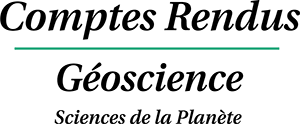Postface
C'est bien sûr un honneur d'avoir à clore ces actes faisant le point sur les gaz à effet de serre, leur origine, le développement de leurs émissions, leurs conséquences, la manière d'en contrôler les excès.
Je suis paléontologue ; c'est le temps long que je suis en mesure d'apporter à ce regard.
Je rappellerai donc d'abord la continuité de l'histoire, celle qui nous fait passer, sans rupture, des étoiles aux planètes et de la vie à l'homme. L'homme et son histoire culturelle s'inscrivent ainsi parfaitement dans le fil de cette histoire naturelle.
J'insisterai ensuite sur le rôle fondamental que l'environnement a joué sur les choix de cette histoire, y compris sur le cours de celle de l'homme et de son émergence.
De même qu'il y a quatre milliards d'années, la réunion de molécules en cellules s'est accompagnée d'une aptitude à la reproduction, n'oublions pas qu'il y a trois millions d'années, c'est la réunion de cellules nerveuses en gros encéphales qui s'est accompagnée d'une aptitude à réfléchir, y compris à la manière d'intervenir sur l'environnement.
C'est bien sûr à l'homme que cette aventure est arrivée. Depuis qu'il a eu l'audace de donner le premier coup sur une pierre pour en changer la forme, il n'a cessé de transformer ce qui l'entourait à son profit. Et la Terre a pris peu à peu le visage qu'il a bien voulu lui façonner.
Mais le développement de l'effectif des hommes et celui de leurs technologies vient de faire se fâcher la planète. Cette colère-ci n'est pas ancienne, et on en mesure encore mal l'intensité; c'était un des propos de ce colloque ; c'était aussi la raison de l'écriture d'une Charte de l'environnement.
Les « colères » de la Terre ont toujours existé, mais il n'est pas impossible que cette dernière soit en partie de notre fait; la science a beaucoup de paramètres à prendre en compte et peu de recul pour démontrer dans cette ire notre responsabilité et en mesurer la part ; aussi la Charte, par précaution, a-t-elle voulu prendre les devants, afin de prévenir les éventuelles mauvaises conséquences des actions des hommes, voire l'irréversibilité de certaines d'entre elles.
La Terre est belle et on l'aime bien ; sa situation par rapport à son étoile lui a permis ce privilège de fabriquer biosphère et noosphère ; transformons-la à notre gré – c'est notre droit et notre affaire –, mais pas à notre détriment ; en attendant au moins d'avoir une planète de rechange, soyons attentifs à son évolution.
Postscript
It is, of course, an honour to have to conclude these proceedings which have taken stock of the origin, development and consequences of greenhouse effect gases, and of the ways to monitor their excess.
Being a palaeontologist; I can bring a long-time approach to this overview.
I recall first the continuity of History, which brings us, without any break, from the stars to the planets and from life to man. Man and his cultural history come within the framework of this natural history.
I shall then insist on the fundamental role that the environment has played on the choices of this history, including the history of Man and of his development.
Four billions years ago, the gathering of molecules into cells was accompanied by the ability to reproduce; let us not forget that, three billions years ago, it was the merging of nervous cells into large brains which was accompanied by the ability to think, including ways of affecting the environment.
It is to Man, of course, that this adventure occurred. Since he dared to deliver the first blow to a stone to change its shape, he has never ceased to transform his surroundings to his own profit. The Earth has taken, little by little, the face Man has wanted to give it.
However, the growth of the human population, and that of Man's technologies have just enraged the planet. This anger is not ancient, and its intensity is, as yet, not well understood; its study was one of the purposes of this colloquium; it was also the reason why a Charter for the Environment has been written.
The Earth's wrath has always existed, but it is not impossible that this, most recent manifestation, is partly our fault; science must take into account many parameters and has little chance to stand-back to establish our responsibility in this anger, and to quantify the part we have in it; thus the Charter has cautiously tried to make the first move, in order to prevent the possible adverse consequences of Man's actions, and, indeed, the irreversibility of some of them.
The Earth is beautiful and we have much love for it; its position with respect to its star has permitted it the privilege of creating a biosphere and a noosphere; let us transform it as we wish – it is our right and our concern –, but not to our detriment; until we get an alternative planet, let us be attentive to the evolution of this one.


